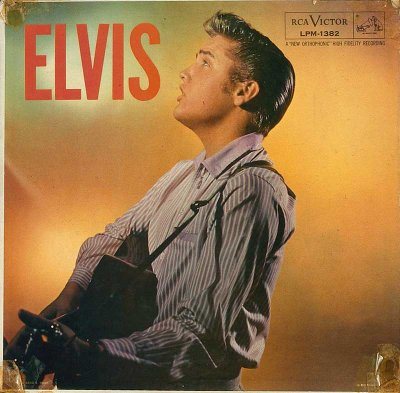
Culturewatch
Before the War [& After Friday’s Murderous Assault on Rushdie]
In the spring of 2006, when Ellen Willis was battling the cancer that would take her life later that year, she emailed approval of First’s pieces on the Danish Cartoon terror attacks. Struck by how much those pieces “echoed themes” in what she’d written at the start of the Rushdie affair, she wondered if we “might be interested in reprinting the editorial I wrote in the Voice as a historical affirmation of the bad road we are going down…” As Rushdie begins a tortuous comeback from the maiming that had him on a ventilator and seems likely to leave him blind in one eye, the piece of the past Ellen thought belonged in First remains horrifically prophetic.
Below “Before the War” is a passage from another First protest against Fatwas that’s still on time.
Flo Jo
Message to a nephew on the road to Florence…
O quick and true, the best pieces of art in the world — Michelangelo’s PRISONERS, statues fighting their way out of the stone that creates them and same time jails them, they are as renaissance and post modern and perfect as art can be. Just stand and weep.
Tactile Values
LAST DAY TO SEE LARRY MADRIGAL’S EXHIBIT IN NYC!!!
Nicodim Gallery is tucked behind a temporary girder due to road work on Greene Street. It’s a little odd to open the door and walk right in on intimate scenes from Larry Madrigal’s marriage. Per the exhibition’s press release:
Over the course of creating Work / Life, the artist and his wife conceived their second child. He watched his wife’s body change while his pretty-much stayed the same. She is a mother, he is still Larry…
He’s out to make himself useful. Madrigal confessed somewhere — maybe on his instagram — that he wasn’t sure his massage below was doing any good, until his wife put her book down…

A Photographic Album
Review of The Auschwitz Album: A Book Based Upon an Album Discovered by a Concentration Camp Survivor, by Peter Hellman (Random House, 1981). First published in Aperture 89 (Winter 1982). Reprinted in Danny Lyon: American Blood: Selected Writings 1961-2020, (Karma Books, New York).
Paris in the Present Tense
 I’m out to write something fresh about Paris after going there with my wife for four days in July to visit my son who’s doing a summer semester in the city. (If you hear a whoosh, it could be the sound of a fool rushing in.)
I’m out to write something fresh about Paris after going there with my wife for four days in July to visit my son who’s doing a summer semester in the city. (If you hear a whoosh, it could be the sound of a fool rushing in.)
Boomerang
This morning in bed, during the tea service, Richard Toon echoed a concept he often considers and that seems especially plangent these days: “The past is invariably seen as a mistake.” To wit: You can’t believe what they used to think was true, or beautiful, or worthwhile! The idiots.
Linguistic
Sometimes I regret teaching you words,
my daughter laments when I use kin
and stan in a sentence
about Emily Dickinson. One perk
of having kids is stepping
into culture’s river at its current point,
Imagination (Bill Russell R.I.P.)
Only a handful of players truly changed the game; among that select few, one revolutionized it.
Democracy and Education (Bill Russell on Film)
Despite the stiff narrator (Liev Schreiber) and stock footage from the 60s, Bill Russell: My Life, My Way is mind-full. You might start around 10:30 with Russell’s nicely calibrated recollection of how he felt when another (white) center was chosen as the best player in Northern California after Russell’s USF college team had won 28 of 29 games and a national championship.
Poem for July 3rd (& Larkin Poe’s Covers)
hearing larkin poe ‘wade’ before seeing
being with them before knowing them
we was blind as willie johnson
………….(a hundred years ago)
………….(in the arms of Our Mother)
hearing what Studs T wanted me to hear
“ALL her uncles is musicians”
so how could we be [“culturally deprived”]
in the cotton patch…she won’t even say the words
A Black Woman Remembers Elvis
News of the new biopic about Elvis, which focuses attention on the nexus of black cultural creativity that fed his talent, moved Marsha Music to suggest your editor repost her remembrance…

Elvis was my first love. I was 5 years old in the 1950s, and I sat in the sun on the living room floor with my legs criss-crossed, album cover on my lap, in a pool of light from the leaded-glass window near the fireplace. Motes of dust bounced and drifted in the beam of sun, fairy-like. The sun shined on Elvis Presley too, on that cover; guitar strapped across his stripe-shirted shoulder, as he gazed upward into a faraway sun, or maybe into the light of Heaven itself.
The Ship of Theseus: Dylan 2022
“You can not prescribe to a symbol what it may be used to express. All that a symbol can express it may express.”
– Ludwig Wittgenstein to Bertrand Russell. 1919.
Human Comedy
What follows is an excerpt from a longer piece on black stand-up comedy, “Unlikely Heirs: The Comedic Children of Cosby,” that places contemporary comics in relation to Bill Cosby, including ones who are not easily seen as being in his tradition. In the course of limning the Cosby aesthetic, McInnis highlights two little miracles performed by Ali Siddiq.
I discovered Siddiq after he was already a sixteen-year vet of comedy on two episodes of Comedy Central’s This Is not Happening, “Mitchell” and “Prison Riot.”
In both episodes, Siddiq tells horrifying stories about prison life, but I was unable to stop listening or laughing. Y’all know that I don’t do blood or gore. I don’t like violence in reality or art. Thus, I don’t watch horror films or films with graphic killings. Yet, I was captivated by Siddiq and couldn’t figure out why.
Wali Ali (Ghetto Existentialist)
It’s all in Siddiq’s big eyes which signal his gift for noticing. His most expressive feature enables him to enact felt surprises that define his art.
Trouble in Mind
Monk (68) and Monk in Europe (1968) are streaming at Pioneers Works film site until June 28th. (Click on titles to watch now.)
Getting Your Gun Off
They don’t call themselves the Proud Boys for nothing. Post-teen to middle-aged men gather in the woods. They dress in camouflage. They are armed with the latest in assault weapons. They carry knives. Are they protecting their right to bear arms, as the NRA would have them believe, or are they assembled to mimic a pubescent rite of passage? The symbolism strikes me as too potent to ignore.
“Wide Awake at the Banquet”: Pierre Hadot & Ancient Philosophy
“Hadot deserves to be far more widely known. In the Anglophone world, he is usually eclipsed by Foucault, who was his colleague at the College de France and a great supporter of him, although, as you have probably gathered, Hadot did not agree with Foucault on many issues.”[1] Professor Peter Brown